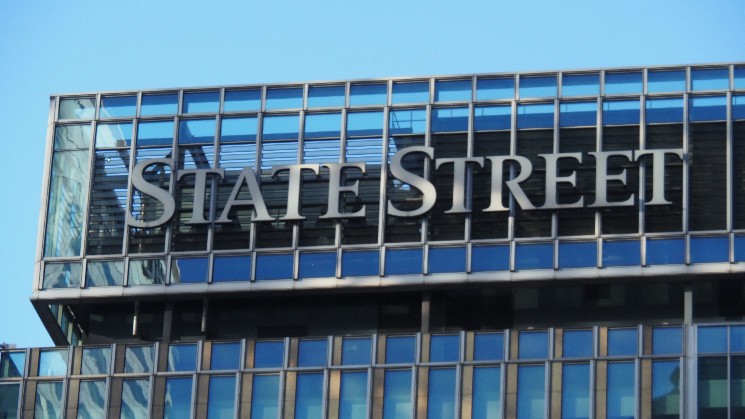State Street Works on Tokenized Bond and Money Market Fund; No ‘Current Plans’ for Stablecoin Project

Boston-based asset management and banking giant State Street (STT) is working on bond and money market fund tokenization, but has no imminent plans to create a stablecoin or tokenized deposits, according to a bank executive.
“We don’t have a current plan to issue a stablecoin or tokenise a deposit,” said Donna Milrod, the bank’s chief product officer, in an interview with Financial News. “That doesn’t mean we won’t at some point, but we don’t feel the need to do that right now.” A July report by Bloomberg said State Street was exploring crafting a stablecoin and developing tokenized deposits.
Instead, the company has two ongoing tokenization projects focusing on tokenizing a bond and a money market fund, which will take the company “through part of next year,” Milrod said. The aim is to build tokenized collateral that would allow traders to use as margin, without the need to liquidate their holdings to post cash.
Traditional finance heavyweights and global banks are getting increasingly involved in the tokenization of traditional financial instruments, or real-world assets (RWA), placing bonds, funds, credit or commodities onto blockchain rails. The process promises operational benefits such as increased efficiency, faster and around-the-clock settlements and lower administrative costs.
“Operational efficiency alone, that’s not enough. It needs to be something commercial,” Milrod said in the interview. “The industry is figuring out where the commercial value is.”
Milton added that collateral tokens could have helped avoid or lessen, for example, the “liability-driven” crisis in 2022, where pension funds could have used money market fund tokens for margin calls instead of liquidating their assets to raise cash.
State Street has also been growing its presence in the digital asset industry, selecting Switzerland-based Taurus as a tokenization partner, CoinDesk reported in August. Milrod said then that the bank would also offer custody for digital assets once the U.S. regulatory environment improves.





 Bitcoin
Bitcoin  Ethereum
Ethereum  Tether
Tether  Dogecoin
Dogecoin  USDC
USDC  Cardano
Cardano  TRON
TRON  Chainlink
Chainlink  Hedera
Hedera  Stellar
Stellar  Bitcoin Cash
Bitcoin Cash  LEO Token
LEO Token  Litecoin
Litecoin  Cronos
Cronos  Ethereum Classic
Ethereum Classic  Monero
Monero  Dai
Dai  OKB
OKB  Algorand
Algorand  Cosmos Hub
Cosmos Hub  Theta Network
Theta Network  Stacks
Stacks  Gate
Gate  Tezos
Tezos  Maker
Maker  KuCoin
KuCoin  IOTA
IOTA  NEO
NEO  Zcash
Zcash  Polygon
Polygon  Synthetix Network
Synthetix Network  Tether Gold
Tether Gold  TrueUSD
TrueUSD  Dash
Dash  Holo
Holo  Zilliqa
Zilliqa  0x Protocol
0x Protocol  Enjin Coin
Enjin Coin  Basic Attention
Basic Attention  Qtum
Qtum  Siacoin
Siacoin  Ravencoin
Ravencoin  Decred
Decred  NEM
NEM  Ontology
Ontology  Huobi
Huobi  DigiByte
DigiByte  Nano
Nano  Hive
Hive  Bitcoin Gold
Bitcoin Gold  Status
Status  Lisk
Lisk  Waves
Waves  Steem
Steem  Numeraire
Numeraire  Pax Dollar
Pax Dollar  BUSD
BUSD  OMG Network
OMG Network  Ren
Ren  Bitcoin Diamond
Bitcoin Diamond